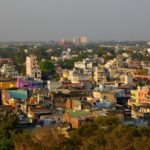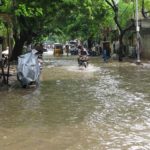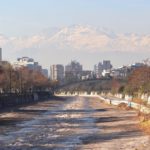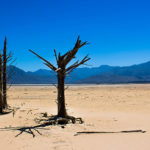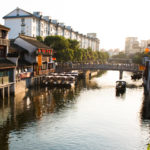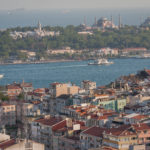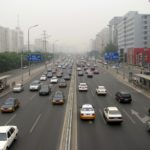Posts in the 'Water' category
One of South India’s biggest cities is almost out of water. A year after Cape Town, South Africa, had its own “Day Zero” crisis, the reservoirs in Chennai are nearly dry, leaving millions in this usually-wet coastal city wondering if they ...

Chennai faced a devastating flood in 2015 that killed hundreds of people and displaced many more. Today, the southern Indian city’s four main reservoirs are virtually dry. This crisis is not only due to lack of water. Lack of proper management is ...

In 2014, São Paulo nearly ran out of water. Schools closed, crops faltered and reservoirs were left at a tiny 5 percent of their capacity for the city and its surrounding population of 22 million. It was the worst drought in eight decades. ...

Glaciers do more than feed our rivers and lakes, they also serve as critical savings banks for water withdrawals when other sources dry up. In South America, the glaciers and snowpack that crown the Andes provide slow, consistent meltwater that ...

Cape Town is running out of water. After three years of intense drought, South Africa’s second-largest city is just a few months away from “Day Zero,” the day when the city government will shut off water taps for most homes and businesses. The impacts ...

There were 663 million people without access to safe drinking water in 2015, according to the United Nations and World Health Organization. Many of those going without are from low-income households in cities across the global south. Jenna Davis, associate professor ...

As India’s summer intensifies, many states are already in the midst of a drought—and the hottest days have yet to arrive. At the same time, water-intensive agriculture, rapid urban expansion, increases in industrial activity and growing energy production are driving ...

The journey of our water from source to tap is long, and not one we think much about. For most of us, our water starts high in the mountains, hundreds of miles away. From there, water flows across natural and ...

In 2015, the United Nations and World Health Organization (WHO) estimated that there are 663 million people around the world without access to safe drinking water, with nearly half of these people living in sub-Saharan Africa. While Africa’s urban areas ...

Leia este post em Português. Serious water crises have plagued Brazil’s major cities in recent years. Severe pollution in Rio de Janeiro’s Guanabara Bay is jeopardizing sailing and other water sports at the upcoming Olympic Games. A historic drought from 2013 to 2015 in São Paulo ...

This article was originally posted on the Pacific Standard. For the past five years, the World Economic Forum has listed water crises among the world’s top global risks, alongside others like “major systemic financial failure” and cyberattacks. Unfortunately, the ranking has proven ...

Last December, Beijing’s city government issued a “red alert” for smog levels—the highest possible designation. Schools and construction sites closed, traffic was restricted, and air pollution reached 10 times the World Health Organization’s recommended limit. Meanwhile, residents in neighboring cities ...

While the words “forests” and “cities” don’t traditionally go hand in hand, urban forestry has started to bridge that gap. While some cities have minimal tree cover due to inadequate soil or a lack of space, others are nearly half ...

By 2030, the world is projected to spend an estimated $10 trillion on repairing and expanding water infrastructure. Dams and treatment plants are aging, water demand is surging, and more frequent extreme weather events threaten our water security—each driving up water management ...

There are many tools that cities can use to achieve sustainable development; however, one finite resource that will be perpetually limited is space—a necessity for new roads, infrastructure, homes and buildings. Regardless of what initiatives are set in place, as ...







